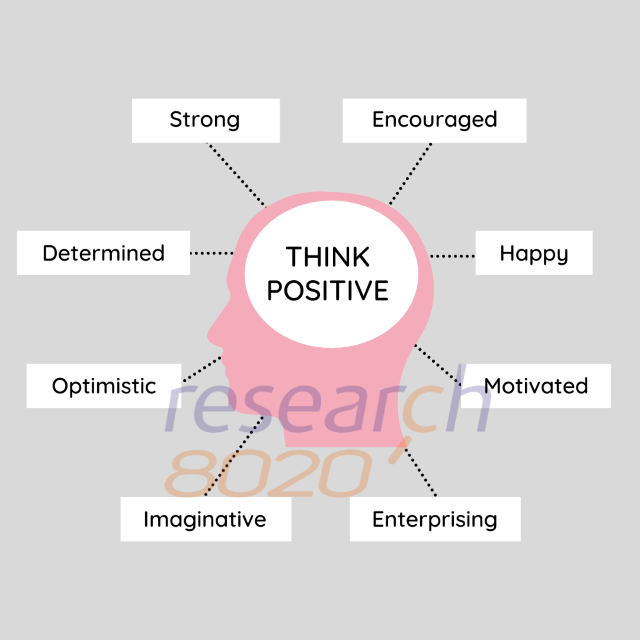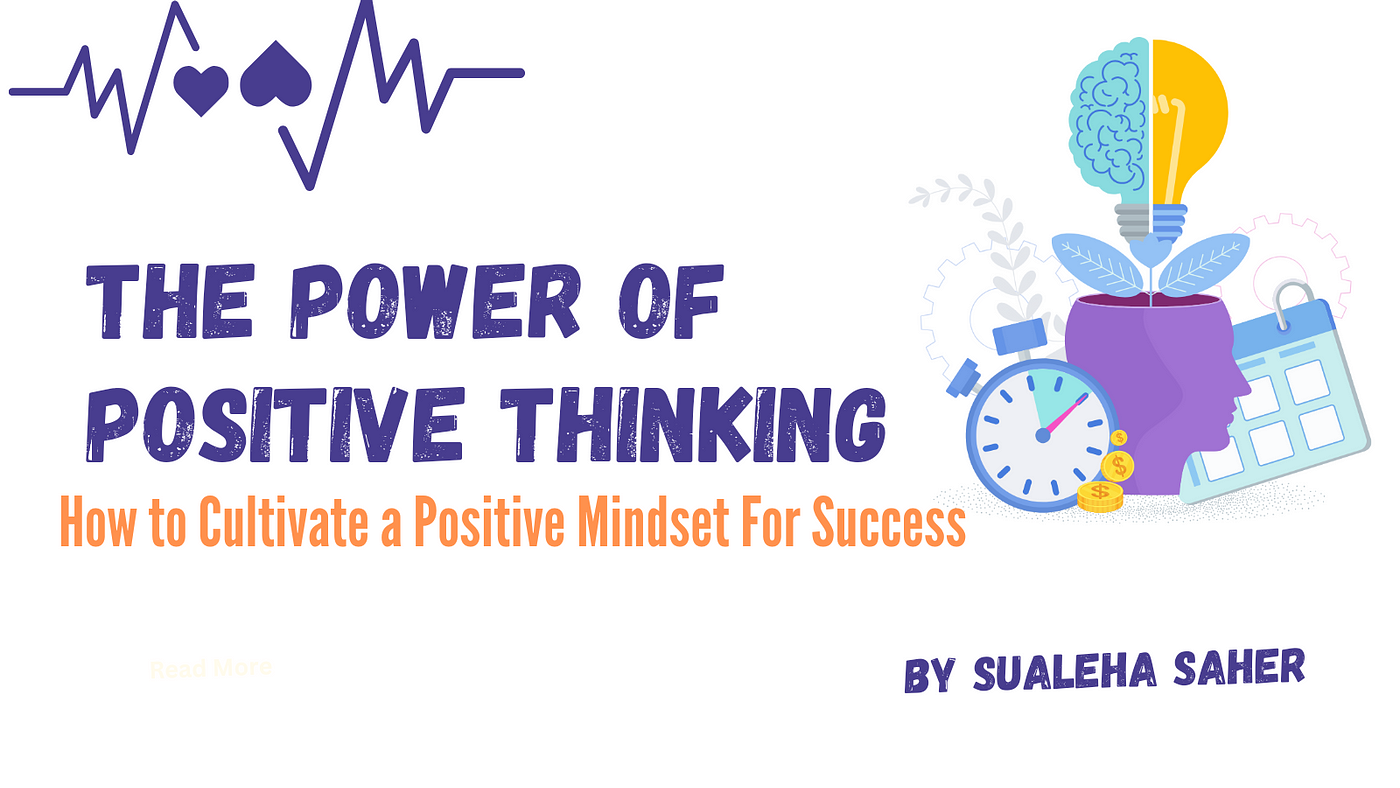It’s startling to realize how a positive mindset can not only shape our daily experiences but ultimately sculpt our long-term outcomes. This concept isn’t merely about feeling good; it’s about leveraging optimism to fuel progress towards personal and professional aspirations. By embracing a growth mindset, individuals proactively cultivate the soil in which success can germinate and flourish.
The origins of the ‘growth mindset’ theory can be traced back to the work of psychologist Carol Dweck, who first proposed that the way individuals think about their abilities could significantly impact their achievement levels. Recent studies underscore this viewpoint, revealing that a staggering 90% of top performers harbor not just skills but a predominantly positive outlook. This propels them towards continual growth and effective problem-solving, thereby leading to sustained success in various domains of life.
To cultivate a growth mindset and achieve success through positive thinking, embrace challenges as opportunities for learning, persist against setbacks, value effort as a path to mastery, learn from criticism, and find inspiration in the success of others. This approach enhances personal resilience and potential.

Source: medium.com
The Power of Positive Thinking: How to Cultivate a Growth Mindset and Achieve Success
Positive thinking is more than just seeing the glass as half full. It’s about seeing challenges as opportunities to grow and learn. When you think positively, you’re more open to new experiences and willing to tackle obstacles head-on, which is essential for personal growth. This mindset allows you to bounce back from setbacks quicker, fueling your journey toward success.
Developing a growth mindset starts with understanding that skills and intelligence can be developed with effort. Unlike a fixed mindset, which holds that our abilities are static, a growth mindset thrives on challenge and sees failure not as evidence of unintelligence but as a heartening springboard for growth. It’s this mindset that enables individuals to persevere despite obstacles.
- Embrace challenges
- Persist in the face of setbacks
- See effort as a path to mastery
- Learn from criticism
- Find lessons and inspiration in the success of others
Success stories from various fields often highlight the role of positive thinking and a growth mindset. For example, many successful athletes, business leaders, and artists attribute their achievements to a persistent, positive approach to problem-solving and continuous improvement. Their stories serve as powerful reminders of what we can accomplish with the right mindset.
The Role of Positive Thinking in Fostering a Growth Mindset
Positive thinking is a powerful tool that plays a critical role in developing a growth mindset. Instead of getting stuck on problems, positive thinkers find ways to overcome them. They believe they can improve and succeed, which helps them turn challenges into opportunities. This attitude is essential for growth because it encourages people to strive for better results and not fear failure.
When students or professionals face a tough task, the belief that they can learn and improve helps them give their best effort. This is where positive thinking intersects with a growth mindset. A positive attitude helps maintain motivation, especially during tough times, making it easier to remain engaged and avoid giving up.
- Believing in improvement through effort
- Seeing challenges as opportunities to grow
- Maintaining motivation during difficulties
- Viewing setbacks as valuable learning experiences
- Using feedback constructively
Positive thinking also shapes how we interpret and respond to feedback. With a growth mindset, criticism is not a threat, but a guide that shows what needs to be improved. By staying positive, learners see feedback as a necessary part of learning and growth, not as a discouragement.
Examining the Impact of Growth Mindset on Personal and Professional Achievement
A growth mindset isn’t just a valuable tool for learning; it’s a crucial element in both personal and professional success. This perspective leads people to view challenges as milestones for development rather than roadblocks. It promotes the concept that talents and abilities can be developed through dedication and hard work. This belief fuels perseverance, a trait closely linked to achievement in various fields like academics, sports, and business.
Professionally, a growth mindset encourages individuals to step outside their comfort zones and take on new projects. It supports a culture of innovation and continuous learning. This is especially important in rapidly changing fields such as technology and business. Employees with a growth mindset are more likely to embrace challenges, seek feedback, and learn from criticism, all of which can drive career advancement.
- Embrace new challenges at work
- Seek feedback and constructive criticism
- Learn from failures and successes
- Pursue continuous learning and development
In personal life, a growth mindset helps individuals to overcome obstacles and cope with the pressures of day-to-day stresses. It empowers them to learn from experiences and grow from them, which enhances resilience and overall well-being. The positive attitudes stemming from this mindset can improve relationships with others by fostering empathy and understanding.
Bridging the Gap: From Fixed Mindset to Growth Mindset
Moving from a fixed mindset to a growth mindset requires a change in how we view learning and intelligence. People with a fixed mindset believe their abilities are static and unchangeable. On the other hand, those with a growth mindset understand that they can develop their talents through effort and persistence. Making this shift isn’t always easy, but it’s possible with the right strategies.
The first step in this transformation is awareness. Recognizing the moments when you react with a fixed mindset allows you to make a conscious effort to change your thought patterns. It might be when you’re facing a difficult challenge or when you encounter failure. Acknowledging these instances gives you the power to start thinking differently.
- Recognize your fixed mindset triggers
- Challenge the beliefs that limit you
- Embrace challenges as opportunities to learn
- Reward efforts, not just outcomes
Another crucial strategy is to redefine what ‘failure’ means to you. Instead of seeing it as a negative reflection of your abilities, view each failure as a stepping stone towards success. This mindset encourages you to try new things and learn from each experience, which is essential for growth.
Lastly, surrounding yourself with people who support and demonstrate a growth mindset can greatly influence your own attitudes and behaviors. Whether it’s friends, family, or co-workers, being around others who embrace challenges and persist in the face of setbacks can inspire you to adopt a similar approach in your own life.
Strategies for Implementing Positive Thinking and Growth Mindset in Everyday Life
Adopting a growth mindset and maintaining positive thinking are key to achieving personal development and success. The first step to this is setting clear and achievable goals. These targets provide direction and a benchmark for progress, which helps maintain focus and motivation. Setting goals reminds you of what you want to achieve and why it’s important.
Practicing mindfulness is another effective strategy. It helps you become more aware of your thoughts and feelings. Mindfulness teaches you to observe your thoughts without judgment, allowing you to foster a more positive mindset. This practice can help reduce stress and anxiety, making it easier to maintain a positive outlook.
- Set clear and achievable goals
- Practice daily mindfulness
- Surround yourself with positive influences
- Reflect regularly on your progress
- Respond to challenges with a learning perspective
Another powerful tool is to keep a gratitude journal. Writing down what you are grateful for each day can shift your focus from what’s wrong to what’s right. This habit strengthens positivity by regularly directing attention to the good in your life, which can be especially helpful during tough times.
Finally, it’s crucial to surround yourself with people who uplift and encourage you. Seek out friends, mentors, and communities that support your growth and share your values. Positive influences not only provide encouragement during challenges but also celebrate your successes with you, reinforcing your growth mindset.
Case Studies: Success Stories Fueled by Positive Thinking and Growth Mindset
Positive thinking and a growth mindset are not just theories; they have tangible impacts on success. One well-documented case is that of Michael Jordan, one of the greatest basketball players of all time. Jordan was cut from his high school basketball team, yet he didn’t let this setback defeat him. Instead, his positive thinking and relentless commitment to growth turned him into a sports legend, emphasizing that failure can be a powerful motivator.
Another inspiring story comes from the world of technology with Carol Shaw, one of the first female game designers. Entering an industry dominated by men, Shaw maintained a growth mindset, continually sharpening her programming and design skills. Her work paved the way for more gender diversity in tech and video gaming, proving that barriers can be broken with the right mindset.
- Michael Jordan – Overcame early career setbacks
- Carol Shaw – Pioneered in a male-dominated industry
- J.K. Rowling – Published a best-selling series after numerous rejections
- Oprah Winfrey – Rose from poverty to become a media mogul
J.K. Rowling’s journey to publishing the Harry Potter series is another testament to how a positive mindset can lead to monumental success. Despite facing personal challenges and numerous rejections from publishers, her belief in her story’s worth and her perseverance eventually resulted in one of the most successful book series in history.
Oprah Winfrey’s rise from a poverty-stricken childhood to become one of the world’s most influential media personalities also underscores the power of a growth mindset. Facing numerous obstacles throughout her life and career, Oprah continuously used positive thinking as a tool to advance and achieve. Her story exemplifies how optimism can transform potential barriers into stepping stones toward success.
Key Takeaways
- Embrace challenges to foster learning and growth.
- Persist through setbacks to build resilience.
- See effort as a fundamental path to mastery.
- Use criticism as feedback for improvement.
- Draw inspiration from others’ successes.
Frequently Asked Questions
Explore common inquiries about cultivating a positive, growth-oriented mindset. Discover how these concepts can significantly impact success.
1. What is a growth mindset?
A growth mindset is the belief that abilities and intelligence can be developed through dedication and hard work. This view creates a love of learning and resilience essential for great accomplishment. People with this mindset thrive on challenges and see failures as opportunities to grow.
This contrasts sharply with a fixed mindset, where abilities are seen as static. Transitioning to a growth mindset involves changing how we think about learning and struggle.
2. How does positive thinking affect performance?
Positive thinking influences performance by encouraging a focus on progress and possibilities rather than limitations. This outlook enables individuals to approach challenges with confidence and persistence, improving overall outcomes in personal and professional settings.
Studies show that maintaining a positive outlook increases motivation and decreases stress, enhancing one’s ability to solve problems effectively and embrace new opportunities confidently.
3. Can anyone develop a growth mindset?
Absolutely! A growth mindset isn’t an innate trait but something that anyone can develop with practice. It starts with recognizing your fixed-mindset triggers and consciously choosing to approach tasks with optimism and determination.
Cultivating this mindset involves embracing challenges, persisting in face of setbacks, valuing effort, learning from feedback, and finding inspiration in others’ success.
4. What are strategies to maintain positivity in tough times?
Maintaining positivity during challenging times can be facilitated through several practices such as mindful meditation, keeping a gratitude journal, or engaging in positive self-talk. These actions help steer focus away from negativity and foster resilience.
Another effective strategy is building supportive relationships that provide encouragement when facing adversity; Optimism can often be bolstered by connections with others who uplift your spirits.
5. Why is it important to learn from criticism?
Viewing criticism as constructive feedback is vital for personal development within a growth mindset framework. It allows us to identify gaps in our skills or knowledge base and provides direction for improvement.
Rather than taking negative feedback personally, see it as data points helping you refine your processes or behaviors toward better outcomes over time.
THE POWER OF POSITIVITY – Best Motivational Video For Positive Thinking
Conclusion
Embracing a growth mindset and positive thinking is essential for personal and professional development. These approaches encourage resilience, foster creativity, and enable individuals to achieve their fullest potential by viewing challenges as opportunities for growth.
Incorporating these practices into daily life not only enhances success but also contributes to a more fulfilling and productive life experience. By maintaining a focus on continuous improvement and positivity, individuals can navigate any challenge effectively.




